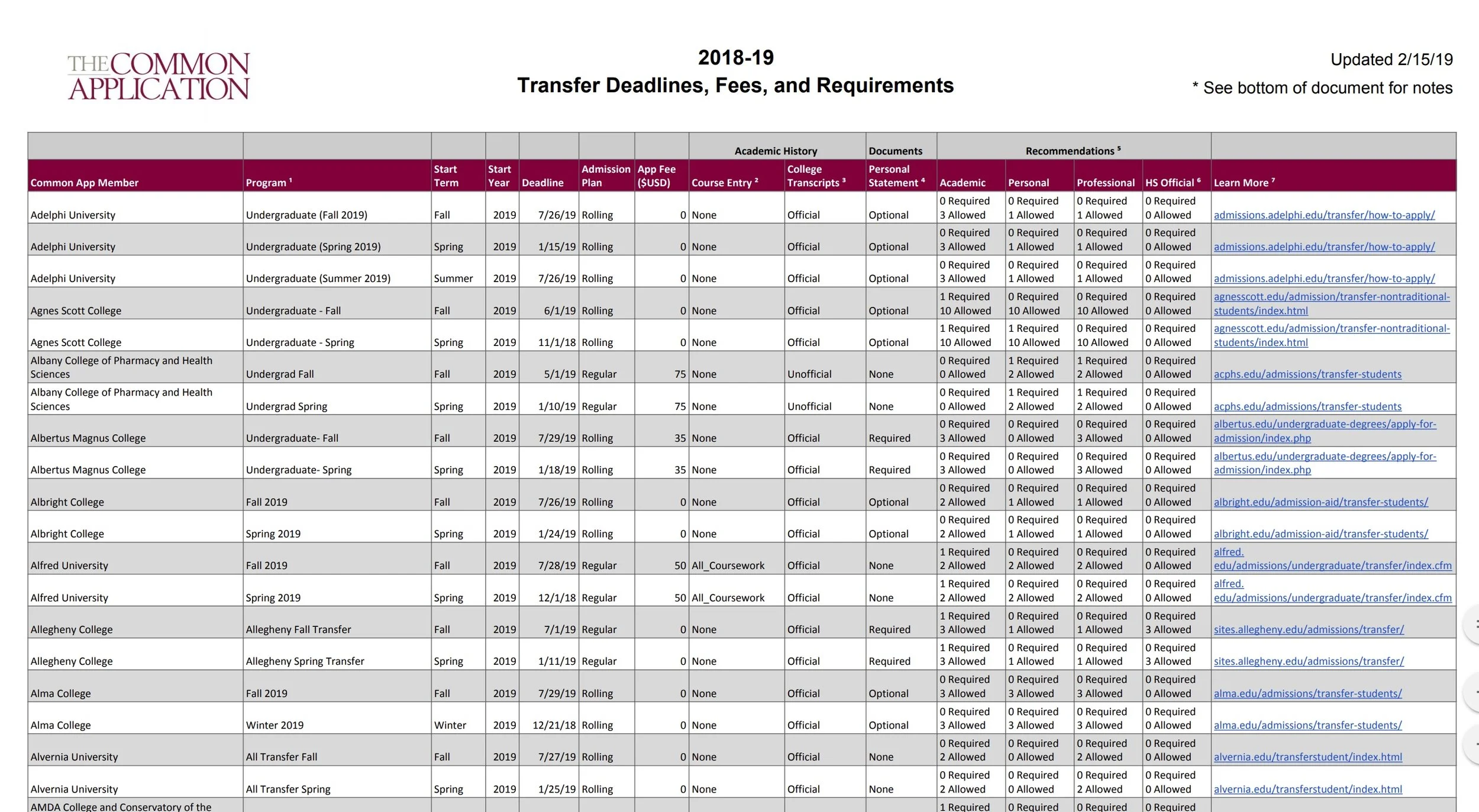If you’re entering your senior year, now is the perfect time to start thinking about the college admissions timeline. The College Board recommends students apply to 4-8 schools. According to C2Education, approximately a third of all high school students apply to 7 or more colleges. By September, you should have a running list of colleges that you’re interested in before narrowing them down to your top schools.
Read MoreThere are a ton of scholarship websites out there and it’s hard to know which ones are legit and which are well-cloaked scams. So, I felt the need to put together a list of websites I’ve personally used and vetted (mostly as a recent grad student). Below is a list of my favorites for 2019.
Read MoreDid you know that the majority of low-income, qualified students don’t apply to top colleges? With high grades and academic achievements, many would be as competitive as their peers at the most selective schools, including Ivy League institutions like Harvard, Yale, and Princeton. Yet, a number of socioeconomic factors either dissuade or prevent low-income students from applying to these schools. In comes QuestBridge.
Read MoreQ: Does the ranking of your high school matter to college admissions?
A: Yes, at least at the university I’ve worked at.
Read MoreAmong some of the most selective institutions, low-income students have a low representation--a fact that’s “relatively unchanged from 20 years ago.” The adversity score has been created perhaps in response to this achievement gap and in an effort to support students who are beating all odds by applying to college in spite of their circumstances.
Read MoreA: Your GPA is just one factor among a dozen or so colleges use to evaluate applicants. In many ways, I view course rigor and other academic indicators as important, if not more important, than having an incredibly high GPA (3.75+). Still, GPA does matter in the long run.
Read MoreAre you thinking about studying engineering? From mechanical engineering to computer engineering, there are plenty of paths to explore. Plus, the field of engineering is expected to continue growing in the next decade, so you’d be looking at a strong job outlook for the future.
Read MoreIt’s still early. You don’t need to create your dream college list or polish up your resume just yet. In your 9th and 10th grade year, you should be focusing on your studies, getting involved in extracurricular activities, and setting up healthy habits to carry you through the next few years.
Read MoreAs helpful as it is to research online and browse college websites, nothing beats speaking face to face with a college representative. College fairs are a great way to get to know different colleges and start to understand what you prioritize in a school.
Read MoreApplying to Law School? When the application anxiety starts to hit, it’s time to take control and start preparing.
Read MoreDid you know you can apply to 53 schools for $35 dollars with the Common Black College Application?
Read MoreDavid Coleman, CEO of The College Board, recently announced plans to assign an adversity score to every student who takes the SAT in an effort to capture their social and economic background.
Read MoreThe experts say that admissions rates (i.e. the percentage of applicants who get offers of admission) are falling at top colleges because prospective students are applying to more schools than they used to, while the number of available spots hasn’t really picked up.
Read MoreYes, you can and should put an after school job on your college applications. I would say only about 1 in every 8 cases when I read undergraduate applications did the applicant list a job…
Read MoreIf you’re worried about which test to take for college admissions and going back and forth, look no further! There are enough decisions to make in the coming months; don’t let choosing which test to take add to your list of stressors. In fact, many students take both. Taking both tests allows you to compare which scores reflect your abilities better. Colleges accept both, so whether you choose the ACT or the SAT, you won’t be making the wrong decision.
Read MoreIf you’re still questioning what you want to do after graduation, this is the post for you. While friends and classmates are sending in their deposits and planning where they’re going to live next year, you’re stuck between taking a year off, going away for school, or taking community college courses.
Going into the admissions cycle with a plan will help you stay on track and prevent being overwhelmed. Rest assured, as daunting as it seems, the college admissions process is manageable and doable. We’re here to take the mystery out of the process and help you feel prepared for senior year.
Read MoreCommon App’s new Transfer Requirements Grid provides an easy-to-read chart that helps prospective transfer students better understand the deadlines, fees, and specific application requirements for the 600+ colleges and universities who accept the Common App for transfer applications.
Read MoreStarting the college search from scratch is intimidating. There are hundreds of schools across the country and they all vary in size, location, program offerings, internship opportunities, and more. How do you know where to start? If you’re early in the college search stage, this list is for you.
These days, resumes are needed for more than just job applications. In fact, a growing number of colleges are requiring prospective freshmen to submit resumes as a part of their undergraduate applications. While grades, test scores, and extracurricular involvement form the basis for most admissions decisions, a stellar resume can be the deciding factor for an admissions officer when it comes to choosing between a group of similar candidates.
Read More




















